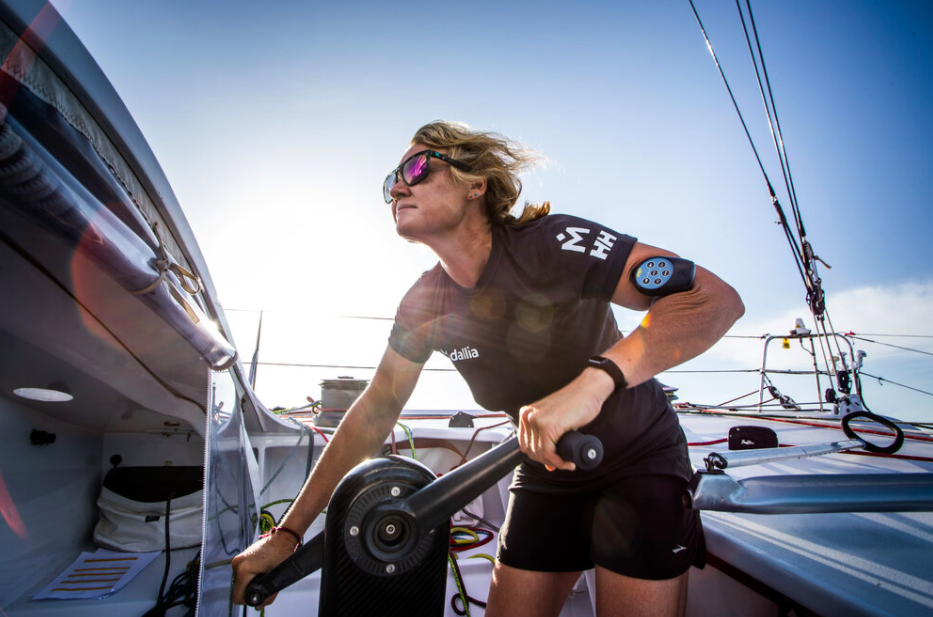Equal status exists only on the water, says Pip Hare in new book

Pip Hare’s eagerly awaited account of her experience completing the Vendée Globe – the non-stop, round-the-world solo yacht race that takes competitors around the fringes of Antarctica – has finally been published, just in time for her to set off in this year’s race.
Hare became a firm favourite of race-watchers due to her open, honest and frank social media updates which showed not just that she is an exceptional sailor, but also that’s she’s human.
“Writing this book has been quite a tonic for me,” says Hare in her introduction. She first spoke to MIN about the project in May 2024, when she was still looking for funding to get her to the start line of this year’s Vendée Globe.
Browse the latest news about Pip Hare’s journey to, and within, the Vendée Globe.
In the following extract, Hare discusses what it’s like to compete in a level-playing-field:
One of the things I am most proud of is that I am engaged in one of the few competitive sports on the planet where men and women compete on equal terms. When I am alone on the ocean I am judged as a sailor, critiqued on my performance alone; the ocean does not discriminate when it deals out problems to the fleet. I love this equality more than anything; it is incredibly liberating, and I have fought hard to be given the opportunity to be measured on my performance alone, good or bad.
It is not without irony that I acknowledge this equal status exists only on the water, and it helps that I am at the height of my career.
There will always be media interest in a woman battling it out in a male-dominated world. French sailing legend Isabelle Autissier, who provided my teenage inspiration to dream big, explained to Derek Lundy (for his book Godforsaken Sea) that before the BOC Challenge of 1990–91, where she had been the sole female competitor, she had been asked repeatedly how she’d be able to handle such heavy sails, etc.
She didn’t feel that these questions were particularly relevant to her: ‘I just did it because I wanted to do it, and that’s all. Of course, I knew I was the only woman, but I didn’t care about that. Everyone else cared a lot more than me.’
In some ways, the attention was as unfair for the male competitors as it was for her.
When a woman has done well she is put on a pedestal, and that is only another form of condescension.
Autissier explained, ‘First of all, you are not taken seriously because you are a woman. People thought, “She’s a woman. She’s not as good as the men, so she’ll be at the back of the fleet.” But then, when you prove you can do it – that you can win – it’s the opposite. I dislike that very much. The race is difficult for everyone, for me and for the guys. We all have to deal with the same difficulties.’ I could not echo these sentiments more, and demonstrated this in 2020 when I tried, and failed, to attain a World Sailing Speed Record. I was offered the female record instead, and turned it down. Part of my understanding of equality is the right to be judged on equal terms, and that includes when I miss the mark.
The boats we race in the Vendée Globe demand, undeniably, physical prowess. The sails weigh as much as another human being, the winch loads can go up to 7 or 8 tonnes. The biggest sail I have to manage alone is close to 400 square metres, big enough to cover two singles tennis courts.
So how can we, as women, line up against our bigger, stronger male counterparts? The answer is firstly in the power of these boats, which is so immense that physical aptitude is only one of the skills we need to succeed.
In all but the lightest of winds, the boats cannot be ‘muscled’ around. Every sailor needs to employ clever techniques, using winches and blocks (pulleys) to manage high loads; we use autopilots to drive the boats; we adapt our own cockpits and interiors to suit our physical levels. Yes, strength and fitness are important, but we all adapt our methodologies and techniques when managing the physical elements of sailing to suit our own abilities. This not only creates an arena where men and women compete in one class, but 23-year-olds race against 60-year-olds.
Pip Hare’s In My Element: Life lessons from the world’s toughest solo ocean race is available from all good bookshops and online from Bloomsbury. Next time, MIN explores how Hare copes with the literal Doldrums.












